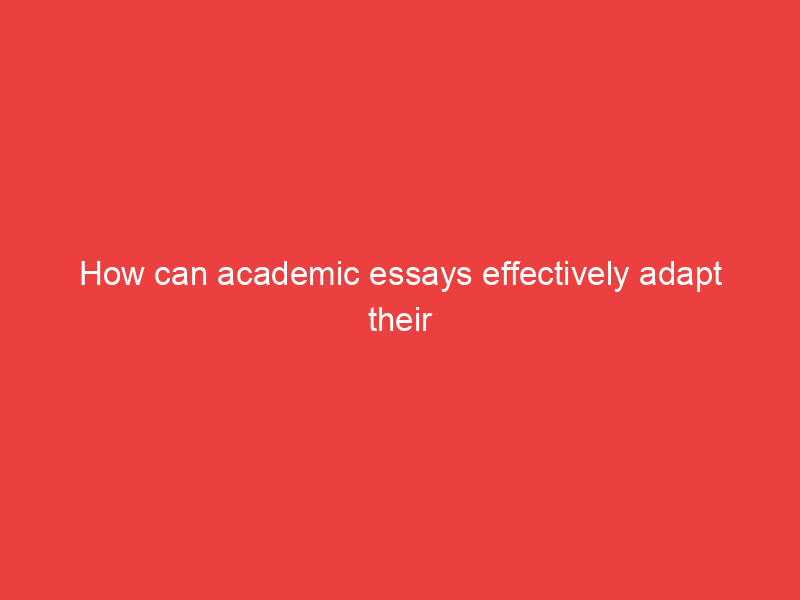How can academic essays effectively adapt their language and format to be more policy-relevant?
To effectively adapt their language and format to be more policy-relevant, academic essays can consider the following strategies:
- Use Clear and Accessible Language: Academic essays often contain technical jargon and complex terminology that may be unfamiliar to policymakers and the general public. To make the essay more policy-relevant, it is important to use clear, concise, and accessible language. Avoid unnecessary technical terms and explain specialized concepts in a way that is easily understandable to non-experts.
- Provide Context and Background: Policy-relevant academic essays should provide sufficient context and background information to help policymakers understand the issue at hand. This may include explaining the significance of the problem, outlining the historical context, and describing the relevant policy landscape. By providing this contextual information, essays can help policymakers grasp the relevance and implications of the research findings.
- Highlight Policy Implications: Academic essays should explicitly discuss the policy implications of their research findings. Clearly articulate how the research can inform and shape policy decisions. This can involve identifying specific policy recommendations, discussing potential interventions or strategies, or highlighting the relevance of the research in addressing societal challenges. By emphasizing the practical relevance of the research, academic essays can better engage policymakers.
- Present Key Findings Upfront: Policy-relevant essays should present their key findings and main arguments upfront, preferably concisely and straightforwardly. This allows policymakers to quickly grasp the main takeaways without having to delve into the entire essay. Clearly articulate the main messages and summarize the key findings in a way that is easily digestible.
- Provide Policy Briefs or Summaries: Academic essays can supplement their research with policy briefs or summaries that distill the main points in a concise and accessible format. These summaries should highlight the key findings, policy implications, and recommendations. Policy briefs can be visually appealing, using bullet points, infographics, or charts to present information in a more user-friendly manner.
- Engage Stakeholders and Seek Feedback: To ensure policy relevance, academic essays can engage policymakers, practitioners, and other stakeholders throughout the research process. Seek their input, involve them in discussions, and incorporate their perspectives into the essay. By involving stakeholders, essays can address their specific information needs and ensure that the research findings directly speak to the policy challenges they face.
- Collaborate with Policy-Oriented Organizations: Collaborating with policy-oriented research organizations or think tanks can enhance the policy relevance of academic essays. These organizations often have expertise in translating research into actionable policy recommendations. By working together, academic researchers can leverage the knowledge and networks of these organizations to bridge the gap between their research and policy audiences.
- Disseminate Findings Widely: Academic essays should aim for widespread dissemination beyond academic circles. Publish in open-access journals or platforms to ensure that policymakers and the public have easy access to the research. Additionally, engage in targeted dissemination efforts such as policy briefings, workshops, or conferences where policymakers and practitioners are present. Utilize social media and other communication channels to reach a broader audience.
By employing these strategies, academic essays can effectively adapt their language and format to be more policy-relevant. This enhances the likelihood of their research being understood, considered, and applied by policymakers in the policy development process.
Please follow and like us:

